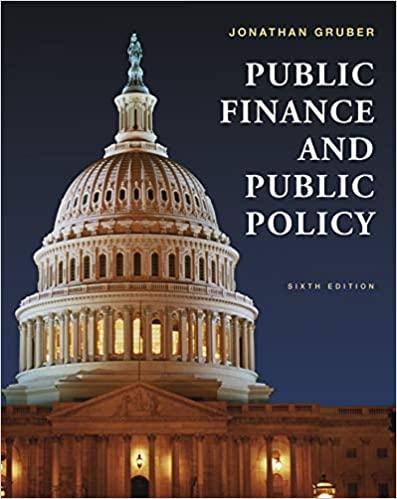Suppose that you have a friend who works in fundraising at the public radio station in your
Question:
Suppose that you have a friend who works in fundraising at the public radio station in your town. One day she tells you excitedly that the station has just been selected to receive a large grant from the federal government. The marketing department at the station plans to feature details about the grant in an upcoming promotional email, hoping that the news will drive a wave of new donations.
a. Using the theoretical tools of this chapter, discuss what would have to be true for your friend’s idea for a promotional email featuring the new grant to be effective in increasing donations.
b. As a budding experimental economist you are interested in the questions about crowd-out that emerged when speaking with your friend about marketing for the local public radio station. You suggest to your friend that this is a perfect opportunity to study crowd-out empirically. You suggest that the station run a small experiment, randomizing the recipients of the email into two groups—one group receiving an email promoting the new federal grant, and the other receiving an email highlighting the great work the station has done recently, but omitting mention of the grant. How would this improve on Kingma’s 1989 study of public radio? What might be the pitfalls of such an approach?
Step by Step Answer:






